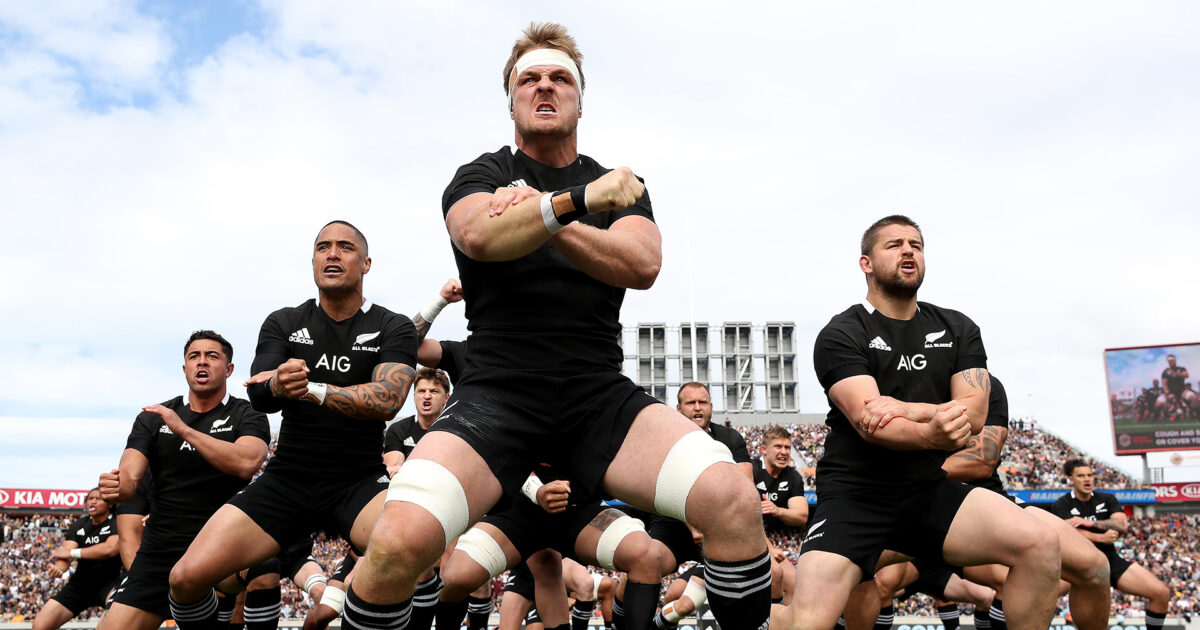'If the haka was any advantage, if the All Blacks played with a poor team they would still win games, and they don't'

Former Wallaby prop Ben Darwin has detailed his research-backed theories around ‘cohesion’ in professional rugby, explaining that cohesion and system it is such an asset it trumps team culture.
Speaking on the Aotearoa Rugby Pod, the Australian analyst went as far as saying the culturally significant ‘haka’ gave ‘no advantage’ to the All Blacks and explained that if it did, they would still win with a poor team.
He explained that New Zealand’s size helps contribute to the cohesion factor, something that Australia possessed back in the late 1990s when it had just three Super Rugby franchises.
“New Zealand in itself is a cohesive system because it is small,” he said.
“That used to be an advantage Australia had, you had a small system on a professional basis and that was our unfair advantage over the rest of the world.
“Now what tends to happen is a big system, like England and France, will be terrible between World Cups. Look at France in ’11, they lose to Tonga and yet they still make a final.
“England in ’07, they lose to South Africa by 40 and yet four or five games later it was much closer. They don’t have cohesion through club because they are so big, they really don’t get time together as a team until the World Cup.
“Particularly now that World Rugby has that 3-month window leading into the tournament. All form is completely out the window when it comes to World Cup.
Darwin highlighted Japan’s approach over the last two World Cups as perfect examples, where under Jamie Joseph the national side was pulled from Super Rugby and played together against other franchises ‘B’ teams and even amateur club teams at times.
Because of they way the Top League is structured, it was the only way to build cohesion in the squad leading up to the World Cup tournament.
“If you look at what Japan did in the lead up to ’15, and the lead up to ’19, is they basically just kept the national team together for 2 or 3 years. And you saw that dramatic improvement.
“The way that Japanese rugby is built, you can’t get any cohesion at club level because there is so many of them.
This was an advantage that New Zealand inherently possessed that kept the All Blacks strong, even though the struggled to win the showpiece event until 2011.
“People will say New Zealand underperformed by not winning World Cups, it wasn’t so much that, it was that bigger countries were able to come to the table where they previously couldn’t.”
“Their success has been systemic over a long period of time.
“One thing that does worry me a bit, is this overt, ridiculous, reverence towards the All Blacks like they are some kind of magical being. Particularly in the Northern Hemisphere.
“As far as I can understand, they are actually humans. I think we overplay that notion of the All Blacks being sub-human, more than a human being like a Superman and so that tends to intimidate, particularly a lot of the Northern Hemisphere countries.
Often before a key match against the All Blacks in the Northern Hemisphere, talk begins to surface in the media about banning the haka as it is seen as an advantage for the Kiwis.
Darwin went on to dispel this as a myth, categorically stating that ‘they lose just like anybody else’ if they don’t have a good team and ‘there is nothing to be gained’ from performing the pre-match ritual.
“If the haka was any advantage, if the All Blacks played with a poor team they would still win games, and they don’t, they lose just like anybody else,”
“That game against Ireland, that game against Australia in Perth, if the All Blacks have a poor team, they lose. Just like everybody else.
“There is nothing to be gained. Look, it’s great, but there is no advantage to the haka statistically. There is nothing we can see that is making any difference.
One factor that does make a difference according to Darwin’s research is the level of the home crowd, which can influence the man in the middle calling the shots with the whistle. He believed that the convoluted Super Rugby competition cost New Zealand a few titles because of this.
“One of the big things we do see, in terms of bias, is a study into the English football found the greater the level of the home crowd, the greater the bias of the referee. For every 10,000 people, you get one more penalty.
“Which shows that referees are also human as well. That for me showed that the way in which we set-up Super Rugby from 2011 onwards, probably meant New Zealand missed out on a couple of titles during that period of time.
“Because they would have got home finals. Because they were playing each other, they ended up having to play away finals.

























































